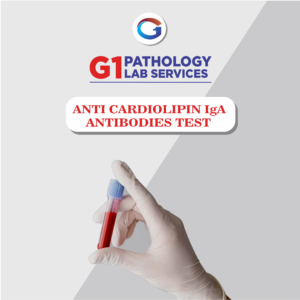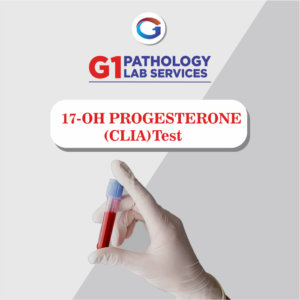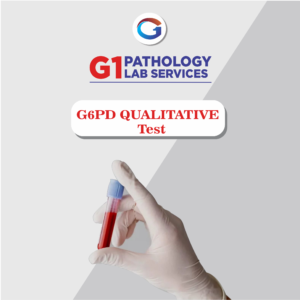Glucose-6-phosphate dehydrogenase (G6PD) is an enzyme found in all the cells of the body and is involved in the production of energy. It protects the red blood cells from the by-products produced during metabolism. A deficiency of this enzyme makes the red blood cells (RBCs) more prone to breaking apart under certain conditions. The G6PD Quantitative Test measures the levels of the enzyme G6PD in blood. The glucose-6-phosphate dehydrogenase enzyme is essential for keeping your red blood cells intact. An enzyme is a chemical compound that regulates different biochemical processes and reactions in your body. The G6PD enzyme ensures that the red blood cells (RBCs) present in your body function to their optimum capacity and live an expected lifespan. The enzyme also protects the red cells from unwanted substances in your blood that can harm the RBCs. When red blood cells are deficient in glucose-6-phosphate dehydrogenase enzyme, they start to break down prematurely. This is called hemolysis. When too many red blood cells break down, a person can develop hemolytic anemia, which can cause further complications like jaundice and even death in certain cases. Red blood cells with insufficient G6PD enzymes are sensitive to certain things that can trigger their destruction. Not having enough glucose-6-phosphate dehydrogenase enzyme is an inherited disorder, called G6PD deficiency. This disorder often affects males and results in the red blood cells not being able to make enough G6PD. Sometimes the cells produce the enzyme, but it doesn’t work the way it should. The glucose-6-phosphate dehydrogenase test measures the level of G6PD enzyme in the blood. Doctors prescribe the G6PD test to people who display symptoms, such as pale skin, jaundice, rapid heart rate, shortness of breath, dark or yellow urine, etc. The results of the G6PD test helps in the diagnosis of hemolytic anemia or other G6PD deficiencies. G6PD deficiency affects nearly 400 million people worldwide. It was noticed that the enzyme has more than one form (polymorphic) in areas with malaria prevalence. The prevalence of G6PD deficiency varies from 2.3% to 27.0%, with an overall majority of 7.7% in different tribal groups of India. Since most of the tribal groups live in areas where malaria is prevalent, using antimalarial drugs irrationally can increase the cases of drug-induced hemolysis.
Shopping Cart







Reviews
There are no reviews yet.